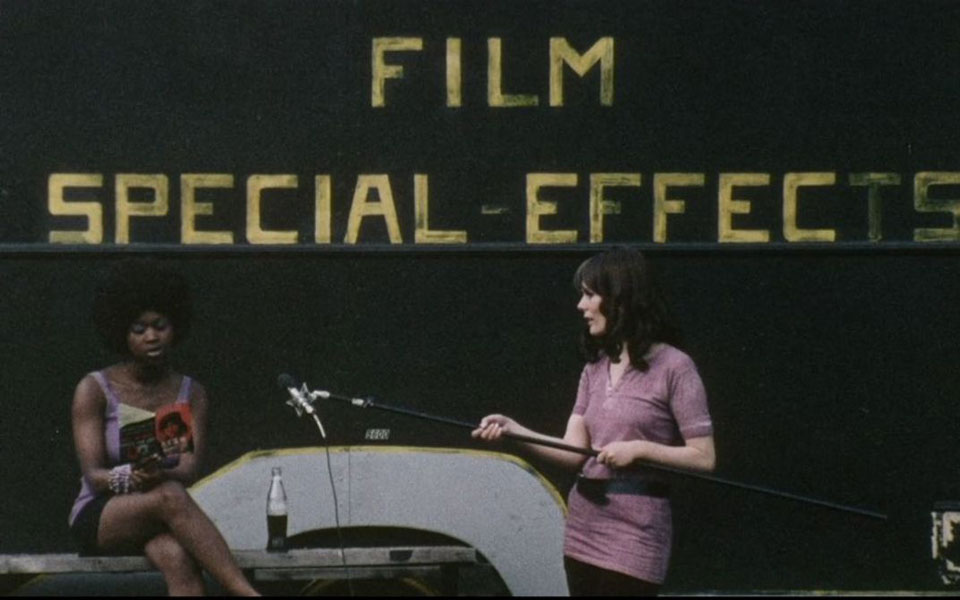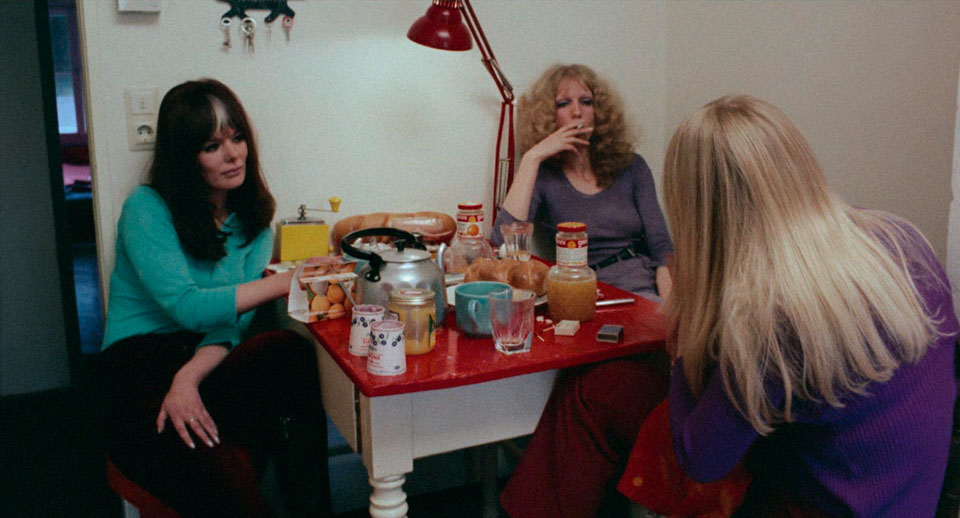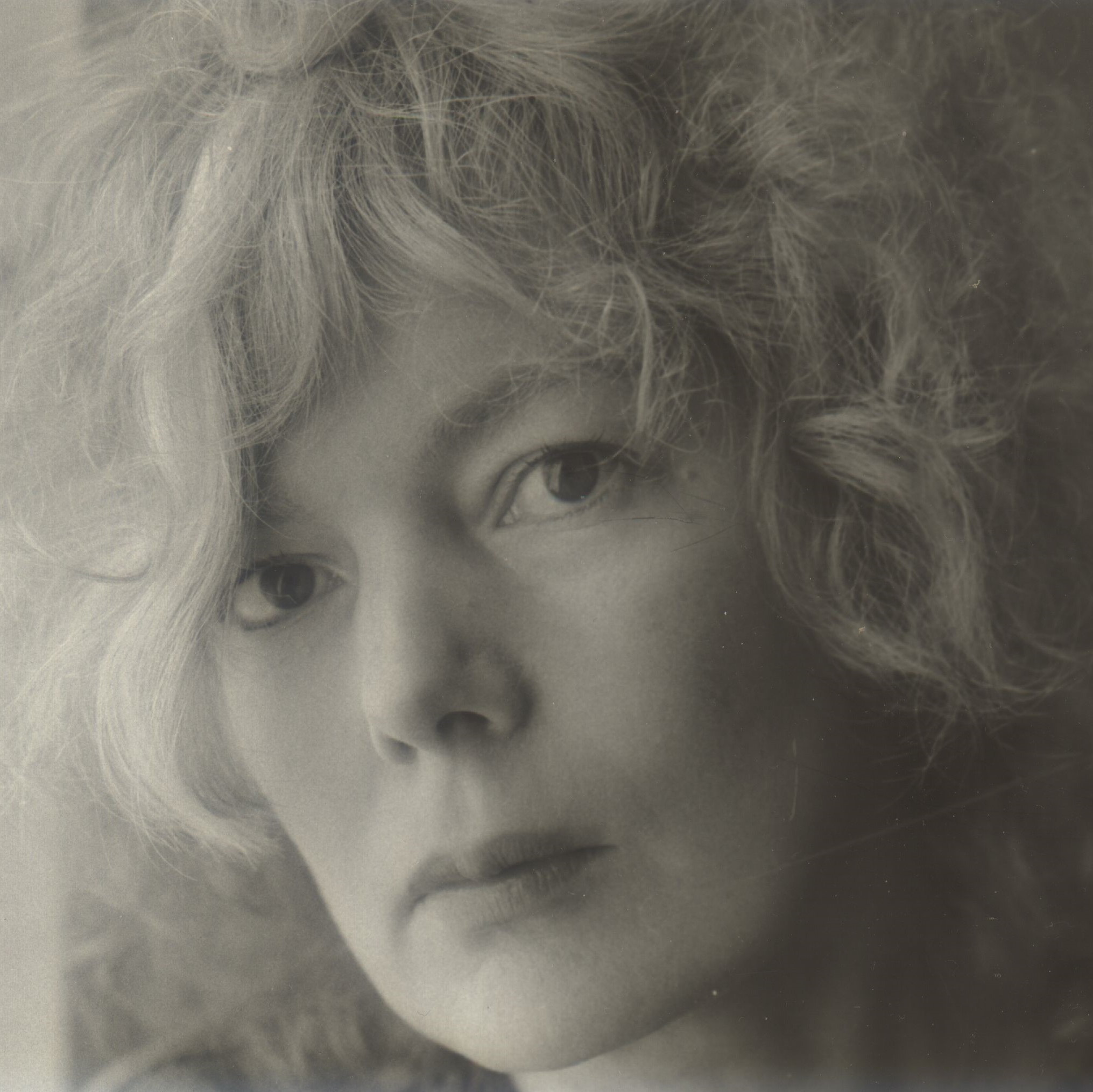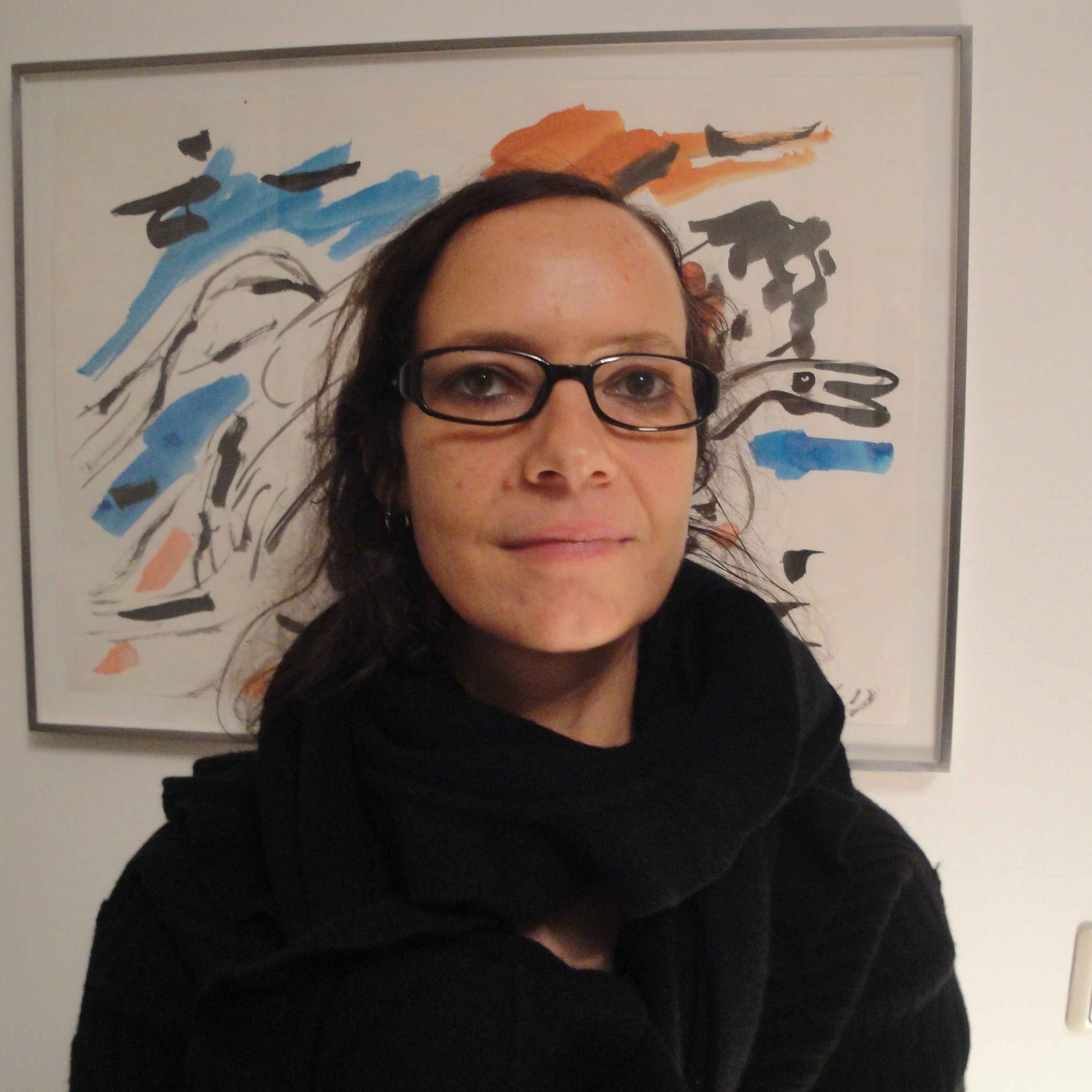FRG 1970 | Director, Script: Ingemo Engström | Camera: Bernd Fiedler | Cast: Edda Köchl, Ilona Schult, Irene Witter, Klara Zet, Stefan Agathos, Ingemo Engström, Lorraine Fernandez, Gerhard Theuring, Katrin Seybold | Sound: Gerhard Theuring | Production: HFF München | Colour | DCP | 92 min | german OV with english SUB | Stiftung Deutsche Kinemathek
DARK SPRING, Ingemo Engström's graduation film at HFF Munich, was in the director's words "a film about women's love utopias". She was one of four women accepted into the first year of the directing programme at the newly founded film school in 1967.
"In a mixture of feature film elements and interview scenes, Engström takes stock of the already awakened women's movement. We see Katrin Seybold, who began making films the same year; Edda Köchl, married to Wim Wenders; Ilona Schult, already divorced from performance artist HA Schult. Ingemo Engström and Gerhard Theuring also appear in front of the camera to stage the lives that they more or less led in Munich. [...]
Life, in the city and the significant wastelands on its outskirts, creeps through the cracks of her films. They take place in the rooms of the communes, with their LPs, mattresses spread out across the floors, posters on the walls, and outdoor areas. There the residents tried to create a practically Situationist space for themselves, in the midst of still-conservative society. DARK SPRING is filmed very close to life and also shows many outdoor shots of Munich. Cars drive through the wide streets, there are hardly any cyclists, the cityscape is dominated by pedestrians. It was a decelerated, slow world. Even the underground didn't exist back then, so that social life required close forms of living together – communes, day-care centres, self-awareness groups, meeting places." (Dunja Bialas, artechock.de, 2019)


| Acronyms | |
|---|---|
| amer. | American English |
| b/w | Black and white |
| OV | Original version |
| SUB | Subtitles |
| +SUB | electronic live subtitling (below the image) |
| INT | Intertitles |
| Countries | |
|---|---|
| AT | Austria |
| FRG | Federal Republic of Germany (historic) |
| BLR | Belarus |
| DE | Germany |
| CAN | Canada |
| GDR | German Democratic Republic (historic) |
| EGY | Egypt |
| FR | France |
| GB | Great Britain |
| URY | Uruguay |
| BRA | Brasil |
| SWE | Sweden |
| UKR | Ukraine |
| PL | Poland |
| IDN | Indonesia |
| PRT | Portugal |
| HRV | Croatia |
| ECU | Ecuador |
| HUN | Hungary |
| AUS | Australia |
| IT | Italy |
| MEX | Mexico |
| IND | India |
Followed by a conversation with the director, moderated by Katja Wiederspahn, Queertactics, Vienna
Studies of psychology, medicine and literary science in Helsinki and Hamburg. Magister treatise on Ingeborg Bachmann's written imagery, Studies at HFF München (Academy of Film and Television Munich) 1967-1970. Own film production since 1974 (Theuring-Engström Filmproduktion).
Films (a.o.) DARK SPRING (1970), BATTLE FOR A CHILD (1974) NARRATION (1975) together with Harun Farocki, ESCAPE ROUTES TO MARSEILLES (1977) together with Gerhard Theuring, LAST LOVE (1979), FLIGHT NORTH (1985), NEW ANGEL. WESTWARD (dir. Gerhard Theuring 1987, IE producer), GINEVRA (1992), MRS. KLEIN (1994). Publications a.o.: "Etwas über Schlussbilder und meine Liebe zum Kontinent" in Filmkritik 3/1976, "Fluchtweg nach Marseille" with G,Theuring, Filmkritik 2/1978, "Escape Route to Marseilles", dossier in framework 18/19, 1982, "Doppelskizze" on Harun Farocki, close up 1998, further materials and conversations in: Renate Möhrmann "Die Frau mit der Kamera" 1980, in Frauen und Film 22/1979, epd film 5/1986. a.o. Recent publications: Materials to Escape Route to Marseilles (HaF-Institute 2019), "D' autres heritages", Claire Angelini in Europe mai 2020, dossier I.E in Swedish in walden filmtidskrift 17/18 2020. Coming: several films in DVD edition filmmuseum, Munich.

Katja Wiederspahn studied philosophy and film studies in Frankfurt am Main and gender studies in Berkeley, California. After many years of working with the independent dance theater company Laokoon Dance Group, she was drawn to cinema in the early 1990s and has been passionately addicted to it ever since. Cinema is her passion, hobby, livelihood, cruising spot, teaching and theory workshop - and much more besides. From her dance theater work, on the other hand, she has retained her love of dancing, although she pursues it far too little, she says. As a translator - especially as a member of the queer_feminist translation collective gender et alia and together with Dagmar Fink - she loves and celebrates the work on the term and the collective examination of language, and as a film festival worker together with Dagmar Fink, among others, simply everything that the cinema has to offer as a public, shared, even collective space for experience and discussion. (Source: queertactics.at)







